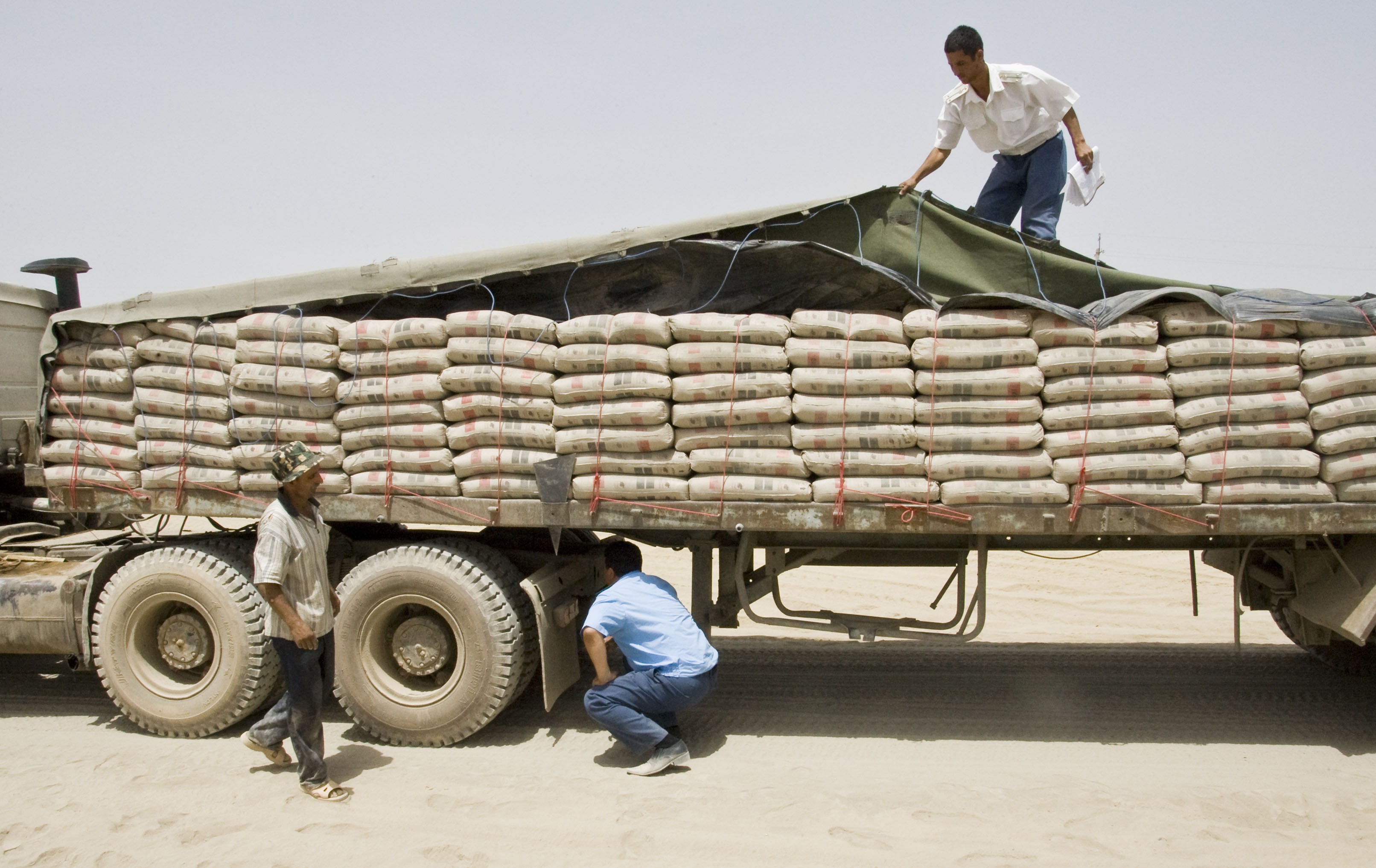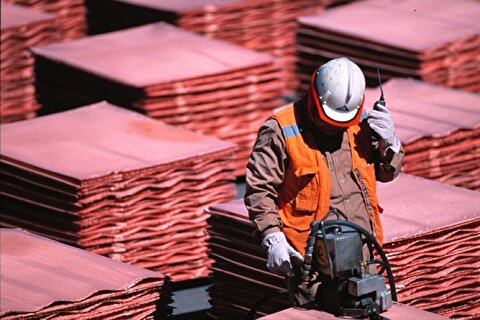
Iraq’s Trade Policy Taking Toll on Iranian Businesses

According to our sister publication, Donya-e-Eqtesad, the main problem is the spontaneous and ad hoc decisions the Iraqi government make in placing limits on the entry of Iranian goods into that country.
These take the form of rise in tariffs, ban on Iranian commodities, altering standards or mandating different types of permits.
Why don’t the two sides have a win-win commercial relationship and what are the Iraqi government’s reasons for placing restrictions on Iranian products?
Requiring Certificate of Origin
As of May 31, Iraq banned the import of any goods into that country without a certificate of origin. Some domestic economic players believe this new regulation, which has stranded some 800 loaded trucks at the border, sounds more like an excuse to toughen trade with Iran.
“Prior to this, certificates of origin could be obtained from the chambers of commerce of border cities, but now the neighboring country has demanded that the document be issued by the embassy of Iraq in Tehran,” said Mohammad Reza Modoudi, the deputy head of Trade Promotion Organization of Iran.
Mehdi Pourqazi, a member of Iran’s Chamber of Commerce, Industries, Mines and Agriculture, is less cynical and believes it is only natural to ask for C/O for imported goods and that this happens in all customs offices. “Iraq was not in possession of the required system for issuing the document until very recently and that’s why they did not ask for it (earlier),” he said.
Cement Trade Restrictions
Cement exports also faced hurdles recently when the Iraqi government demanded all factories exporting the product to that country must register their brand in Iraq and introduce a legal representative at the border.
This is an attempt by the Baghdad government to legalize cement imports and control the volume entering the country. It also aims to offer support to local cement production units that had recently resumed activity in Iraq.
This is while due to the geographical proximity between the two counties, which reduces transport expenses, and the high demand for the construction materials in Iraq, the country had in the past few years become Iran’s main cement export destination.
“In the last two years, 50% to 70% of all cement exports headed to Iraq. The trend continued up until the beginning of the current Iranian year (March 20), but then Iraq put a halt to imports. This was due to the budget deficit, security conditions and recession in construction sector in that country,” says director of Iran’s Cement Industry Employers Association.
Abdolreza Sheikhan added that Iraq has pledged to give priority to Iran’s cement once that country’s circumstances improve.
“Although the brake on cement exports happened partly because Iraq aims to offer support to its own industry, the country will be 7 to 8 million tons shy of meeting its domestic demand, and thus has to provide for the need via imports,” he said.
Sheikhan noted that exports will probably resume after the holy month of Ramadan (July 5).
Iran’s dairy exports to Iraq have also declined since the beginning of the current Iranian year, according to the director of Iran Dairy Industries Association, mainly because of high tariffs set on these products.
Mohsen Jalalpour, the head of ICCIMA, speaks of dysfunctional banking relations as the main problem in Iran-Iraq commercial relations.
“Iraq insists that all trade interactions between the two sides must be carried out in US dollar. This is while financial sanctions against Iran still persist. Furthermore, increasing tariffs, banning the entry of certain commodities and changing the standards required of others are among issues that complicate the situation,” he said, adding that in bilateral negotiations “we tend to give more than we take”.
Underlying Motives
Yahya Al-e Es’haq, the head of Iran-Iraq Chamber of Commerce, believes that the political, economic, internal and security problems facing Iraq today is the reason behind the country taking restrictive in foreign trade.
“All said, Iraq is still one of our best commercial partners and we have to work hard to arrive at a mutual understanding in our economic relations. Close to 80% of our exports in technical and engineering services head to Iraq. We cannot turn a blind eye to the role this western neighbor of ours plays in our foreign trade.”
Al-e Es’haq noted that decision makers and executive bodies in that country are not harmonized, though he is positive that things will start looking up in due course.
“Iraq’s oil revenues are in decline, its military expenses are on the rise and the country is facing serious impediments regarding its development projects. Under the circumstances, the government is compelled to consider tariffs as a source of revenue to compensate for shortcomings in other areas,” he said.
According to the official, a meeting has been held with Iraq’s envoy to Iran to overcome the problems related to the new regulation concerning C/O demanded from Iranian exporters.
Mohammad Lahouti, the head of Iran’s Export Confederation, believes Iran needs to diversify its export markets to avert crisis, should one destination be lost for whatever reason.
“I believe Trade Promotion Organization of Iran needs to step up efforts and find new markets for our exports,” he concluded.


Newmont nets $100M payment related Akyem mine sale

First Quantum scores $1B streaming deal with Royal Gold

Caterpillar sees US tariff hit of up to $1.5 billion this year

Gold price rebounds nearly 2% on US payrolls data

Copper price collapses by 20% as US excludes refined metal from tariffs

St Augustine PFS confirms ‘world-class’ potential of Kingking project with $4.2B value

B2Gold gets Mali nod to start underground mining at Fekola

Goldman told clients to go long copper a day before price plunge

Copper price posts second weekly drop after Trump’s tariff surprise

Codelco seeks restart at Chilean copper mine after collapse

US slaps tariffs on 1-kg, 100-oz gold bars: Financial Times

BHP, Vale offer $1.4 billion settlement in UK lawsuit over Brazil dam disaster, FT reports

NextSource soars on Mitsubishi Chemical offtake deal

Copper price slips as unwinding of tariff trade boosts LME stockpiles

SAIL Bhilai Steel relies on Danieli proprietary technology to expand plate mill portfolio to higher steel grades

Alba Discloses its Financial Results for the Second Quarter and H1 of 2025

Australia weighs price floor for critical minerals, boosting rare earth miners

Australia pledges $87M to rescue Trafigura’s Nyrstar smelters in critical minerals push

Fresnillo lifts gold forecast on strong first-half surge

US slaps tariffs on 1-kg, 100-oz gold bars: Financial Times

BHP, Vale offer $1.4 billion settlement in UK lawsuit over Brazil dam disaster, FT reports

NextSource soars on Mitsubishi Chemical offtake deal

Copper price slips as unwinding of tariff trade boosts LME stockpiles

SAIL Bhilai Steel relies on Danieli proprietary technology to expand plate mill portfolio to higher steel grades

Alba Discloses its Financial Results for the Second Quarter and H1 of 2025

Australia weighs price floor for critical minerals, boosting rare earth miners

Australia pledges $87M to rescue Trafigura’s Nyrstar smelters in critical minerals push

Fresnillo lifts gold forecast on strong first-half surge














